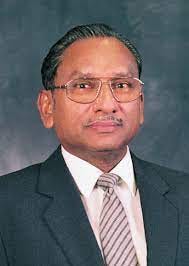How fair is the Singapore judicial system?
The late Subhas Anandhan, one of Singapore’s foremost criminal lawyers famously said that while he would defend murderers and terrorists, he would not take political cases.
He was a married man with a family and could not take the risk of the government’s reaction.
For anyone who speaks or acts against the PAP, the cost can be extreme. And a lot of the PAP’s abuse of process can be traced to its control and abuse of the judicial system.
From being sued to bankruptcy to detention without trial, the PAP’s use of the judiciary is well known.
This does not mean that the PAP direct judges in every political case. Instead, as Ross Worthington noted, the PAP leadership appoint judges that they know would toe the line, especially when they sit on political cases.
But there have been the odd cases where judges do not play ball with the PAP’s expectations.
One example is former Senior District Judge Michael Khoo. Judge Khoo was the Head of the District and Subordinate court system.
His misfortune was his integrity.
When opposition MP JB Jeyaratnam was charged with false declarations, Judge Khoo dismissed most of the charges against JBJ. On the one charge that he found JBJ guilty, he fined the opposition leader $1,000.
The PAP needed JBJ to be fined $2,000 for him to lose his parliamentary seat.
So what happened to Judge Khoo? He was demoted.
He was transferred to be an ordinary Deputy Public Prosecutor in the Attorney-General’s chambers.
He went from the head of the District court to become a normal DPP. Judge Khoo left public service soon after for the private sector.
JBJ raised Judge Khoo’s demotion in parliament. From his continuous prodding, parliament agreed to a Commission of Inquiry (COI).
And the person the PAP chose to Chair the COI was none other than TS Sinnathuray, known to be “one of the most government-oriented justices of the Supreme Court.” (Worthinton, p 494)
As expected, Justice Sinnathuray declared that there was no evidence of government intervention.
It should also be noted that Justice Sinnathuray was also the judge when student leader Tan Wah Piow was charged with rioting. He was accused of instigating a riot at the PAP controlled Pioneer Industries Employees’ Union (PIEU).
Even as a student, Wah Piow had spoken against the PAP abuse of power. The PAP had a score to settle.
G Raman was the lawyer for Wah Piow’s co-accused, Ng Wah Leng. Wah Piow defended himself.
Raman noted how Sinnathuray was unashamedly bias in favour of the government.
Instead of the normal 8 months for the trial to begin (which would give them time to prepare the case), Sinnathuray set it for 1 month.
Wah Piow wanted to get a QC to represent him. Sinnathuray initially assured him that he would be given time to admit a QC (an adjournment would be granted to allow admission).
When Wah Piow applied for the QC to be admitted, Sinnathuray rejected their application for adjournment.
When prosecution witnesses were caught lying, Sinnathuray suggested answers for them. The suggestions were echoed by these witnesses.
According to G Raman:
“What was most disturbing during the trial was that every time Wah Piow wanted to ask a question in cross-examination, Sinnathuray would intervene and ask what the relevance was, often overruling him, saying that Wah Piow’s point was irrelevant. When Wah Piow asked him, “Aren’t you interested in justice?” Sinnathuray burst out, “I am not interested in justice as far as you are concerned.” (Raman, pp.176-179)
Just how fair is Singapore’s judicial system?
References:
Raman, G. (2018). A Quest for Freedom. Ethos Books.
Worthington, Ross. Between Hermes and Themis: An Empirical Study of the Contemporary Judiciary in Singapore. 2001



Injustice and oppression are the most heinous crimes plaguing human societies.
Allah has condemned individuals and nations that oppress and do wrong, promising they will ultimately fail and be losers.
Allah states: “The oppressors do not succeed” Al Quran (12:23).